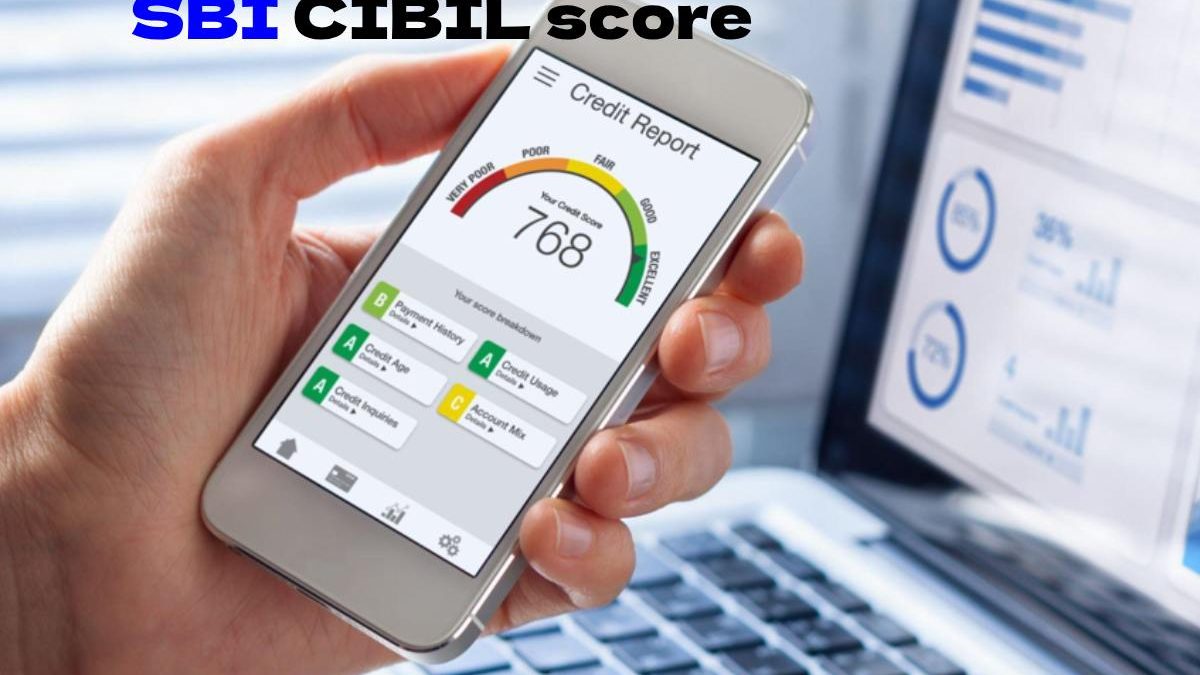When it comes to availing loans or credit cards, your SBI CIBIL score is crucial in determining your creditworthiness. A high score increases your chances of getting approved for credit and helps you negotiate better interest rates and repayment terms. However, if you have a low score, it can be a roadblock to your financial aspirations. But don’t worry; improving your SBI CIBIL score is not rocket science. In fact, with the right strategies, you can boost your score in just five simple steps. In this article, we’ll walk you through these steps and show you how to improve your SBI CIBIL score and take control of your financial future. So, let’s get started.
Table of Contents
Understanding Your SBI CIBIL Score
The SBI CIBIL score, ranging from 300 to 900, measures creditworthiness based on past repayment behavior. It is influenced by factors like payment history, credit utilization, credit mix, and recent credit behavior, determining favorable credit approval.
Why your SBI CIBIL score is important
Your SBI CIBIL score is essential because it is the first thing that lenders look at when you apply for credit. It helps them assess your creditworthiness and determine your risk as a borrower. A high score indicates that you are a responsible borrower likely to repay the loan on time, while a low score suggests that you may default. A low score can also lead to higher interest rates, making it more challenging to repay the loan.
Factors that affect your SBI CIBIL score
Factors like payment history, credit utilization, credit mix, length of credit history, and recent credit behavior influence the SBI CIBIL score. Payment history is crucial, with timely payments improving it. A higher credit utilization ratio indicates reliance on credit and potential debt repayment difficulties.
5 Simple Steps to improve your SBI CIBIL score
Check your SBI CIBIL score
The first step to improving your score is to check your SBI CIBIL score. You can do this by visiting the official SBI CIBIL website and registering for a credit report. Once you have your report, check for errors or discrepancies affecting your score. If you find any errors, raise a dispute with SBI CIBIL to get them corrected.
Pay Your Bills On Time
As mentioned earlier, your payment history is the most crucial factor that affects your score. You must make timely payments on all your debts, counting credit cards, loans, and other bills to improve your score.
Reduce Your Credit Utilization
Your credit use ratio is another important issue that affects your score. To improve your score, keep your credit utilization ratio below 30%. If you have high credit card debt, reflect shifting it to a balance transfer credit card with a lower interest rate.
Maintain A Good Credit Mix
It can also assist in having a variety of credit, counting credit cards, auto loans, and mortgage loans. Don’t take on too much debt to boost your credit mix. Borrow only what you need and can afford to pay back.
Limit The Use Of New Credit
Every time you apply for credit, a hard inquiry is left on your record, which might affect your credit score.
SBI CIBIL Score Myths Debunked
Several myths surround SBI CIBIL scores, which can lead to confusion and misinformation. One of the most common myths is that checking your credit score can lower it. It is not valid. Checking your credit score is considered a soft inquiry and does not affect your score. Another myth is that closing a credit card can improve your score. Closing a credit card can harm your score, reducing your available credit and increasing your credit utilization ratio.
Importance Of Checking Your SBI CIBIL Score Regularly
Checking your SBI CIBIL score regularly is essential to ensure that it is accurate and up-to-date. It also helps you monitor your creditworthiness and identify potential issues affecting your score. Regularly checking your score can also help you detect fraudulent activity or errors on your credit report.
Common Mistakes To Avoid That Can Harm Your SBI CIBIL Score
Borrowers make several common mistakes that can harm their SBI CIBIL score. These include missing or late payments, maxing out credit cards, applying for too much credit, and closing credit accounts. You must avoid these mistakes and practice good credit habits to maintain a good score.
Benefits of a good SBI CIBIL score
A good SBI CIBIL score can provide several benefits, including easier loan approvals, better interest rates, and more favorable repayment terms. It can also help you negotiate better credit card deals and insurance premiums. A good score can also boost your financial confidence and give you peace of mind knowing that you control your financial future.
Conclusion
Improving your SBI CIBIL score is not an overnight process, but with patience and discipline, you can boost your score and take control of your financial future. By following the simple steps outlined in this article, you can improve your score and enjoy the benefits of a good credit score. Remember to practice good credit habits, check your score regularly, and avoid common mistakes that can harm your score.


